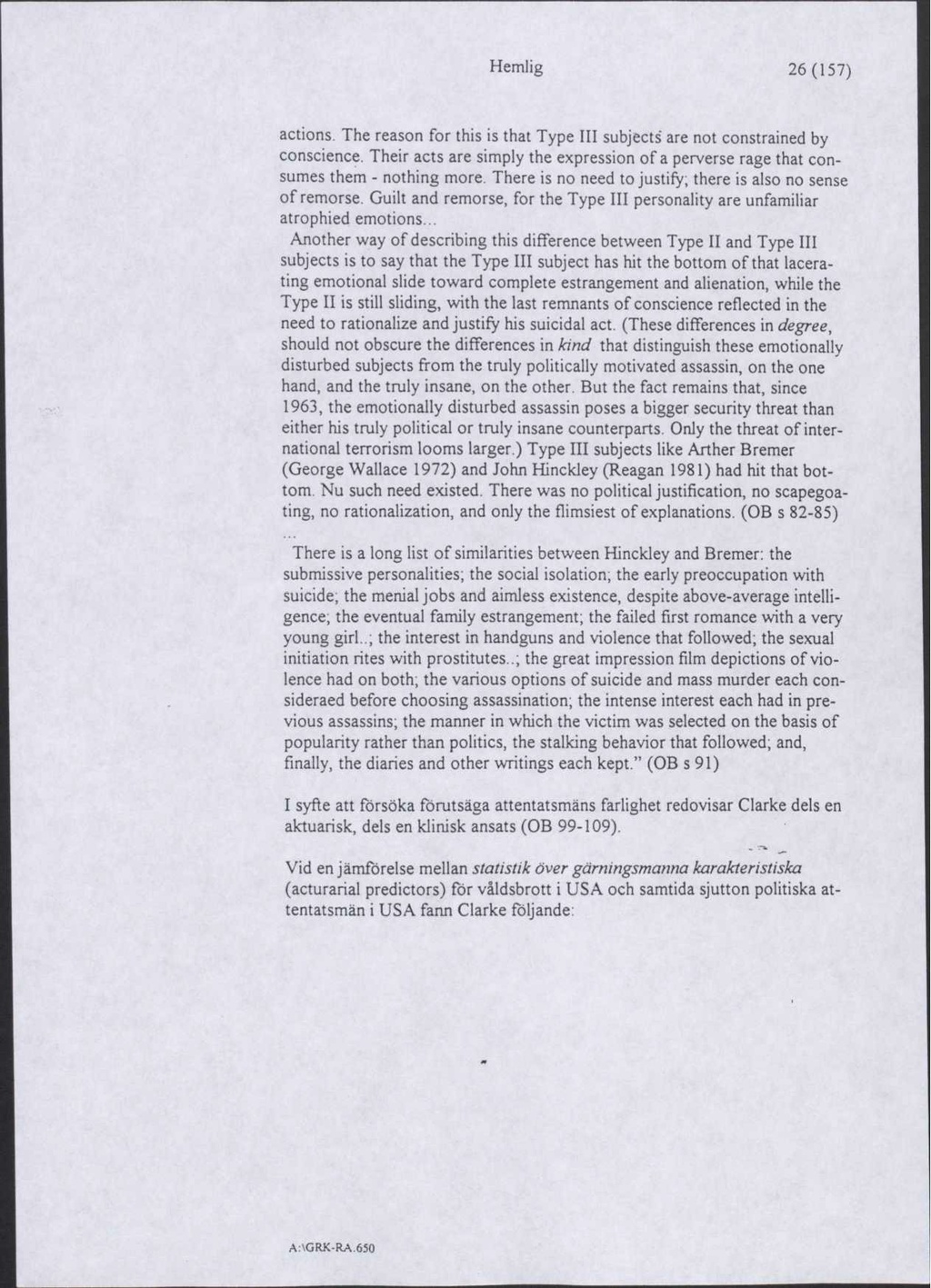actions. The reason for this is that Type III subjects are not constrained by conscience. Their acts are simply the expression of a perverse rage that consumes them - nothing more. There is no need to justify, there is also no sense of remorse. Guilt and remorse, for the Type III personality are unfamiliar atrophied emotions...
Another way of describing this difference between Type II and Type III subjects is to say that the Type III subject has hit the bottom of that lacerating emotional slide toward complete estrangement and alienation, while the Type II is still sliding, with the last remnants of conscience reflected in the need to rationalize and justify his suicidal act. (These differences in degree, should not obscure the differences in kind that distinguish these emotionally disturbed subjects from the truly politically motivated assassin, on the one hand, and the truly insane, on the other. But the fact remains that, since 1963, the emotionally disturbed assassin poses a bigger security threat than either his truly political or truly insane counterparts. Only the threat of international terrorism looms larger.) Type III subjects like Arther Bremer (George Wallace 1972) and John Hinckley (Reagan 1981) had hit that bottom. Nu such need existed. There was no political justification, no scapegoating, no rationalization, and only the flimsiest of explanations. (OB S 82-85)
There is a long list of similarities between Hinckley and Bremer: the submissive personalities; the social isolation, the early preoccupation with suicide; the menial jobs and aimless existence, despite above-average intelligence; the eventual family estrangement; the failed first romance with a very young girl..; the interest in handguns and violence that followed; the sexual initiation rites with prostitutes.., the great impression film depictions of violence had on both; the various options of suicide and mass murder each consideraed before choosing assassination; the intense interest each had in previous assassins; the manner in which the victim was selected on the basis of popularity rather than politics, the stalking behavior that followed; and, finally, the diaries and other writings each kept." (OB s 91) I syfte att försöka förutsäga attentatsmäns farlighet redovisar Clarke dels en aktuarisk, dels en klinisk ansats (OB 99-109).
Vid en jämförelse mellan statistik över gärningsmanna karakteristiska (acturarial predictors) för våldsbrott i USA och samtida sjutton politiska attentatsmän i USA fann Clarke följande:
